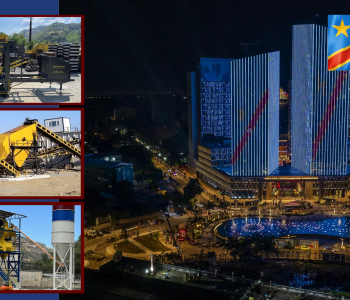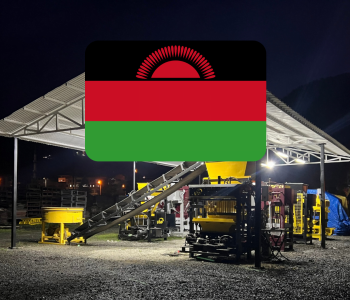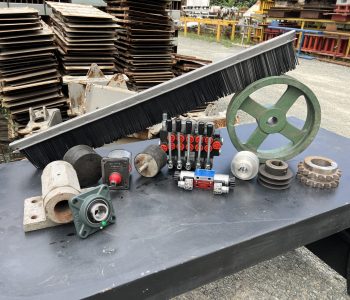Unveiling the Future of Construction: The Evolution and Impact of Concrete Block Machines
In the realm of modern construction, efficiency, durability, and sustainability are paramount. Concrete block machines have emerged as a cornerstone of this evolution, transforming the way we build and redefine architectural possibilities. These machines are not merely tools; they are revolutionary devices that marry technology with construction to produce concrete blocks that form the backbone of our urban landscapes.
The Genesis of Concrete Block Machines
Concrete block machines have a storied history dating back to the early 20th century. Their evolution from rudimentary manual devices to sophisticated automated systems reflects broader trends in industrial automation and construction technology. Initially, concrete blocks were made by hand, a labor-intensive process that limited the scale and speed of construction projects. The advent of mechanized block production marked a turning point, enabling faster, more consistent, and cost-effective manufacturing.
How Concrete Block Machines Work
At their core, concrete block machines operate on a simple yet powerful principle: they automate the process of creating uniform, high-quality concrete blocks. The process generally involves mixing cement, sand, aggregates, and water to form a concrete mix. This mixture is then poured into molds within the machine, compacted, and cured to produce sturdy blocks.
Key Components of Concrete Block Machines:
- Mixer: Combines the raw materials to create a homogenous concrete mix.
- Molding System: Shapes the concrete into blocks of various sizes and types.
- Vibrating Mechanism: Ensures that the mix is compacted evenly, enhancing block strength and durability.
- Curing Chamber: Controls the temperature and humidity for optimal curing conditions.
Benefits of Modern Concrete Block Machines
- Efficiency and Productivity: Advanced block machines produce thousands of blocks per hour, significantly speeding up construction timelines compared to manual methods.
- Consistency and Quality: Automated production ensures uniformity in block size and strength, which is crucial for structural integrity.
- Cost-Effectiveness: Reduces labor costs and material wastage, making construction projects more economical.
- Customization: Modern machines can produce a variety of block types, including hollow, solid, and interlocking blocks, catering to diverse construction needs.
- Sustainability: Many machines are designed to utilize recycled materials and reduce the carbon footprint of the construction process.
Innovations in Concrete Block Machine Technology
The concrete block industry is not stagnant; it is evolving with technological advancements that push the boundaries of what these machines can achieve. Some notable innovations include:
- Smart Automation: Integration of IoT (Internet of Things) technology enables real-time monitoring and control of the production process, leading to improved efficiency and reduced downtime.
- Advanced Materials: New types of concrete mixes, including those incorporating recycled materials and additives for enhanced performance, are being developed.
- Energy Efficiency: Modern machines are designed to be more energy-efficient, utilizing less power and incorporating renewable energy sources.
- Enhanced Precision: Cutting-edge sensors and control systems ensure even greater precision in block dimensions and quality.
- User-Friendly Interfaces: Improved control panels and software make it easier for operators to manage complex production processes and customize block designs.
Future Trends and Challenges
As we look to the future, concrete block machines will continue to evolve in response to industry demands and technological advances. Key trends likely to shape the future include:
- Sustainable Practices: Increased focus on environmental sustainability will drive the development of machines that produce eco-friendly blocks with minimal waste.
- Modular Construction: As modular and prefabricated construction methods gain popularity, block machines will adapt to produce components that fit into these innovative building strategies.
- Automation and AI: The integration of artificial intelligence and advanced robotics will further enhance the automation and efficiency of block production.
- Globalization: As the construction industry becomes more globalized, there will be a growing need for versatile machines that can meet diverse regional standards and requirements.
Conclusion
Concrete block machines are a testament to the ingenuity and progress of the construction industry. Their evolution from manual to automated systems has not only revolutionized how we build but also paved the way for a more sustainable and efficient future. As technology continues to advance, these machines will play a pivotal role in shaping the skylines of tomorrow, offering innovative solutions to meet the ever-growing demands of modern construction.
The future of concrete block machines is as solid as the blocks they produce, poised to build the foundations of our next generation of infrastructure.


